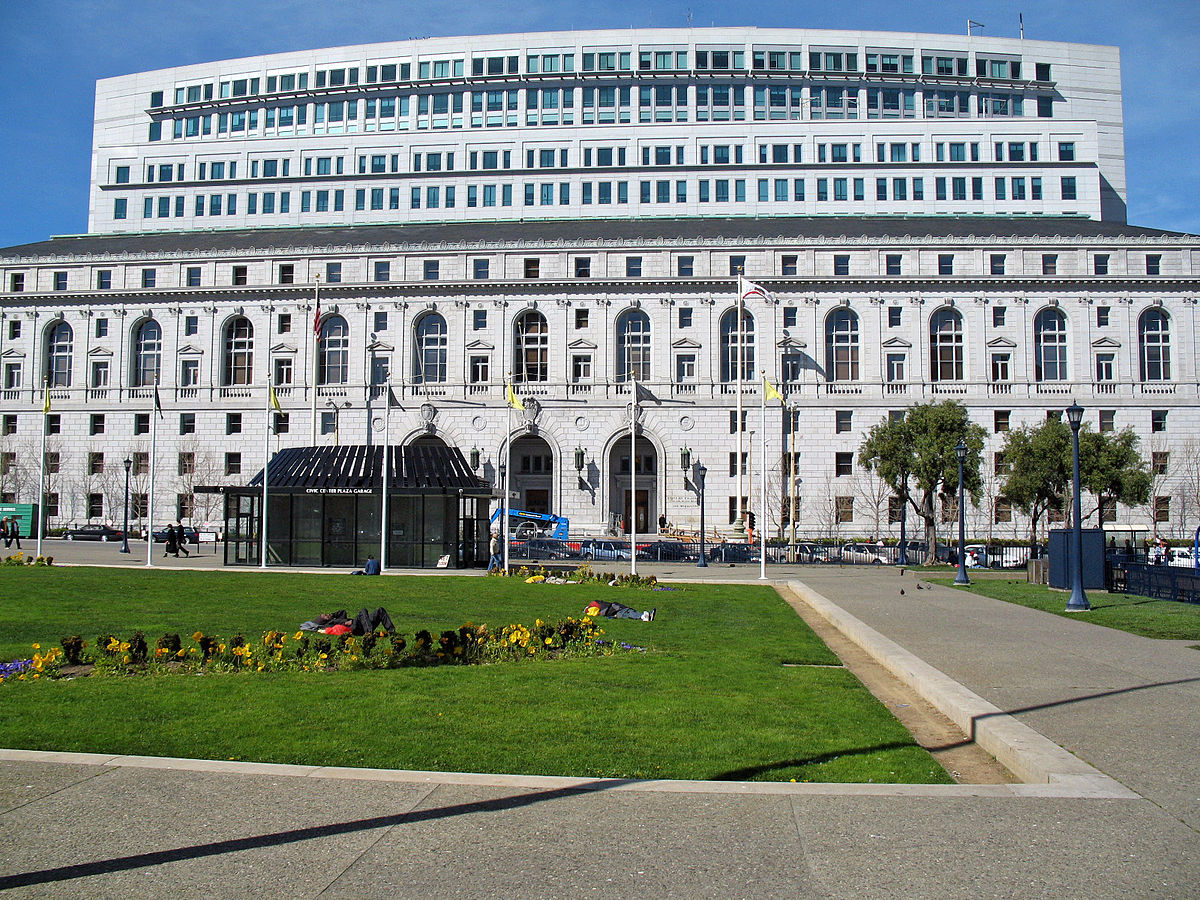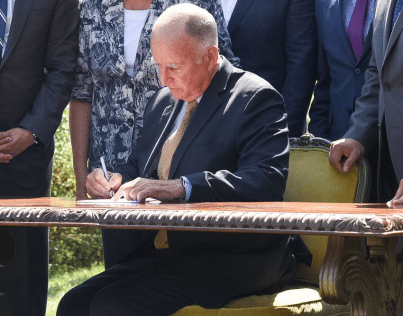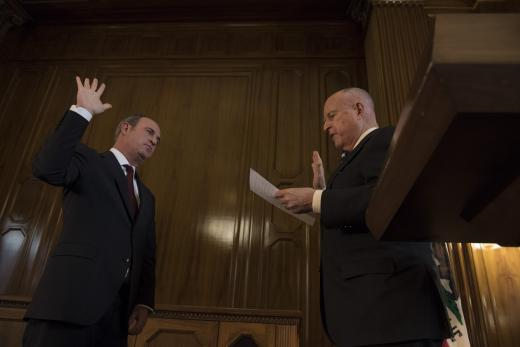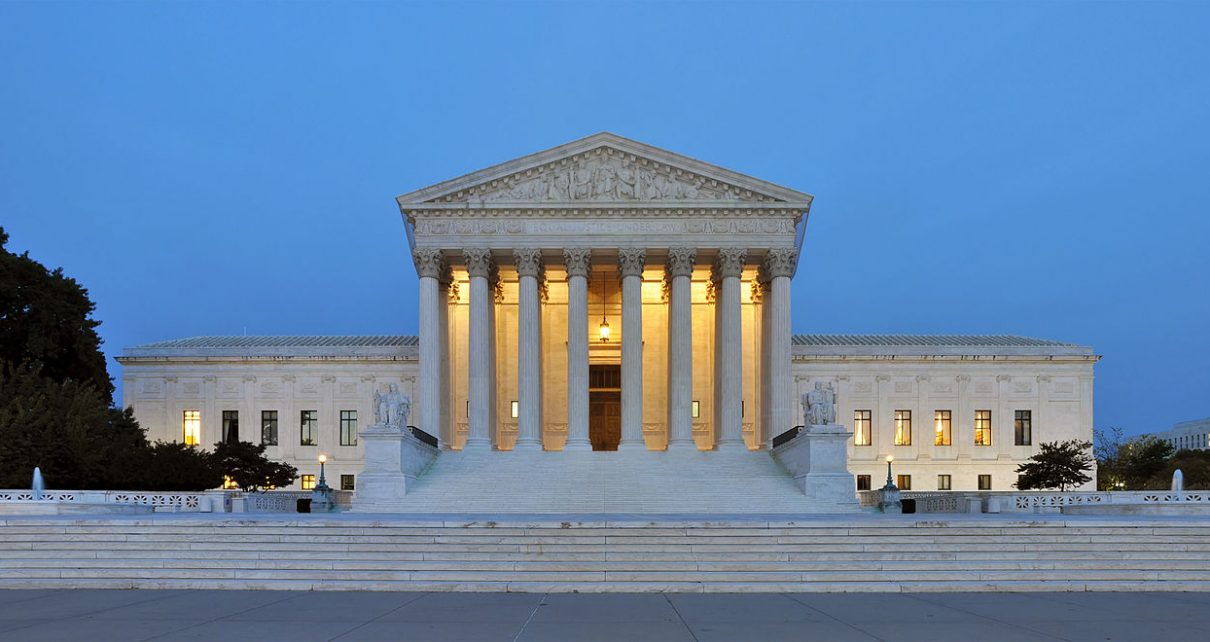
Supreme Court of the United States. (Photo: U.S. Supreme Court)
Supreme Court Refuses To Hear Homeless Public Sleeping Ban Case
With a quarter of the nations homeless in California alone, the ruling has opened up a wide variety of possibilities
By Evan Symon, December 18, 2019 2:13 am
The U.S. Supreme Court refused to hear Martin vs. City of Boise on Monday, reducing the power that police in cities such as Los Angeles and San Francisco have in stopping homeless people from staying in public areas.
An Idaho case with nationwide impact
Martin vs. City of Boise was a 2018 ruling in the 9th Circuit Court of appeals that found that it was unconstitutional to punish people sleeping in public areas such as sidewalks and parks if there wasn’t enough shelter space available.
What had been a small lawsuit in Boise, Idaho over a camping on public property offense turned into an extensive overnight change in law enforcement powers. Whereas before the Martin ruling, police could force homeless people to move on at anytime, after the Martin ruling police needed legal reasons, such as public health violations for tents and camps to move on.
With a quarter of the nations homeless in California alone, the ruling has opened up a wide variety of possibilities. Homeless advocates have praised the decision as it would be the catalyst to begin creating more shelters and low income housing for those who are homeless. It has many elements to being a right to shelter law that would both increase costs for cities to house everyone but also have homeless people essentially being forced to live in city designated shelters instead of outside.
Unanswered questions after Martin
However, while tents and homeless camps in public areas are for now virtually protected, the Boise case left a lot open. It didn’t give specifics on how many beds would be needed for different size cities. Nor did it go into semi-homeless people who live in RVs and cars.
It also didn’t say that these tents or camps couldn’t be broken up for legal reasons. In the Boise case, attorneys for the city said “Public encampments, now protected by the Constitution under the Ninth Circuit’s decision, have spawned crime and violence, incubated disease, and created environmental hazards that threaten the lives and well-being both of those living on the streets and the public at large.” The circuit ruling didn’t get into what cities could and couldn’t do if these issues came up. This is despite a rise in crime and an explosion in diseases such as typhus at camps across California.
Loopholes
“What’s going to happen is that we’re going to see a dramatic rise of ‘public health violations‘, ‘concentrated criminal elements’, ‘public safety violations’ and many other similar terms cities currently use to move homeless camps around,” noted lawyer Harold Yang, a lawyer who has dealt with homeless cases in both Hawaii and California.
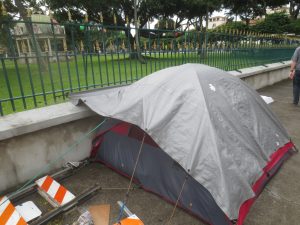
“In California, with everybody on edge because of wildfires, any camp near a grove of trees or dry grass is going to be removed because of ‘fire safety concerns’. It’s happened before, and because everyone remembers those deadly wildfires, judges won’t think twice about moving them now,” Yang said.
“But the other big one will be ‘public health and safety’. We’ve seen cases where a lone tent in a wealthy area of Honolulu was removed because a jogger saw the guy living there dump a bucket into the street. No questions asked. It was labeled a public health risk and he was gone.”
“Excuses will go way up, and that’s going to tie up the courts more. So judges will be making quicker decisions. We’ve seen this happen in Hawaii, and with Martin v. [city of] Boise now precedent, it’s going to be more common in California. Cops just can’t move people willy-nilly now – they’ll need permission.”
“Citizens might also take more direct action. In one San Diego neighborhood I consulted with, residents kept sprinklers going on a motion activated basis, so every time they stepped out of tents they were soaked. Tents were out within a few days of installation. Residents can also say they are threatening and have them move that way.”
“There are so many ways around this ruling. Basically it just goes from “You can move homeless out” to “You need a reason to move them out”.”
Martin vs. City of Boise has now returned to the 9th Circuit court where the city of Boise is currently considering what to do next.
- Bill to Require Law Enforcement Disclosure if AI Was Used To Help Write Reports - August 7, 2025
- Gov. Newsom Files FOIA Request To ‘Expose True Cost’ Of L.A. Federal Troop Deployment for Anti-ICE Riots - August 6, 2025
- California Redistricting: How Newsom’s Plan Will Demolish Hard Fought GOP Gains - August 6, 2025


